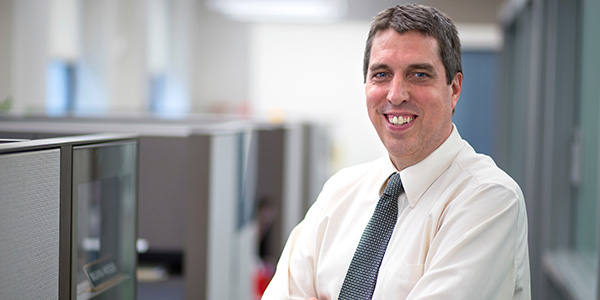
Building character and careers
By Howard Tyler, assistant dean for student services
Image by Christopher Gannon
Over 180 years ago, the American education system underwent a period of dramatic educational reform, led by Horace Mann. As Massachusetts’s first secretary to the nation’s first Board of Education, Mann’s primary goals were to prepare students to be successful in the workplace after school and to be successful in life.
These are still the goals we have for today’s students. Many of the strategies Mann implemented for achieving these goals in the 1830s remain in place today.
Twenty years ago, we told students: “You won’t always be able to look information up, you need to know it,” and: “You won’t always have a calculator in your pocket.” The digital revolution, and especially the mass availability of smartphones, has invalidated those assertions. Currently, over two-thirds of Americans and over one-third of all people in the world own smartphones.
So, today’s graduates literally have all the information they need at their fingertips. What they need from higher education is to learn how to determine the accuracy of information, how to think critically, how to apply information in new ways to solve novel problems and how to create new information. In short, we need to continue to focus less on rote memorization and regurgitation of facts, and more on getting students excited about life-long learning and problem-solving.
Fortunately, in the College of Agriculture and Life Sciences, we have a long history of hands-on learning well-suited to these goals. Many of our instructors embrace new teaching strategies and are using unique combinations of experiential learning, new technologies, service learning and other approaches to help prepare students to be successful in today’s world.
In many ways, our college has always been ahead of the curve producing graduates with these trials. For example, our university farm system is second to none. For 160 years our farms have provided opportunities for students to practice what they learn in the classroom and take part in the creation of new knowledge through undergraduate research.
Our instructors are guides to assist students through the process of learning how to most effectively use all available information. The current educational revolution brings out the traditional strengths of our instructors, our facilities and our students. We can expect our graduates to maintain top placement rates—a record high of 99.2 percent this year.
More importantly, we can continue to expect the phenomenal successes we see in our graduates as professionals, as lifelong learners, as citizens and as contributing members of society.
One thing Horace Mann said that remains relevant today is:
“Building a person’s character is just as important as reading, writing and arithmetic.”



